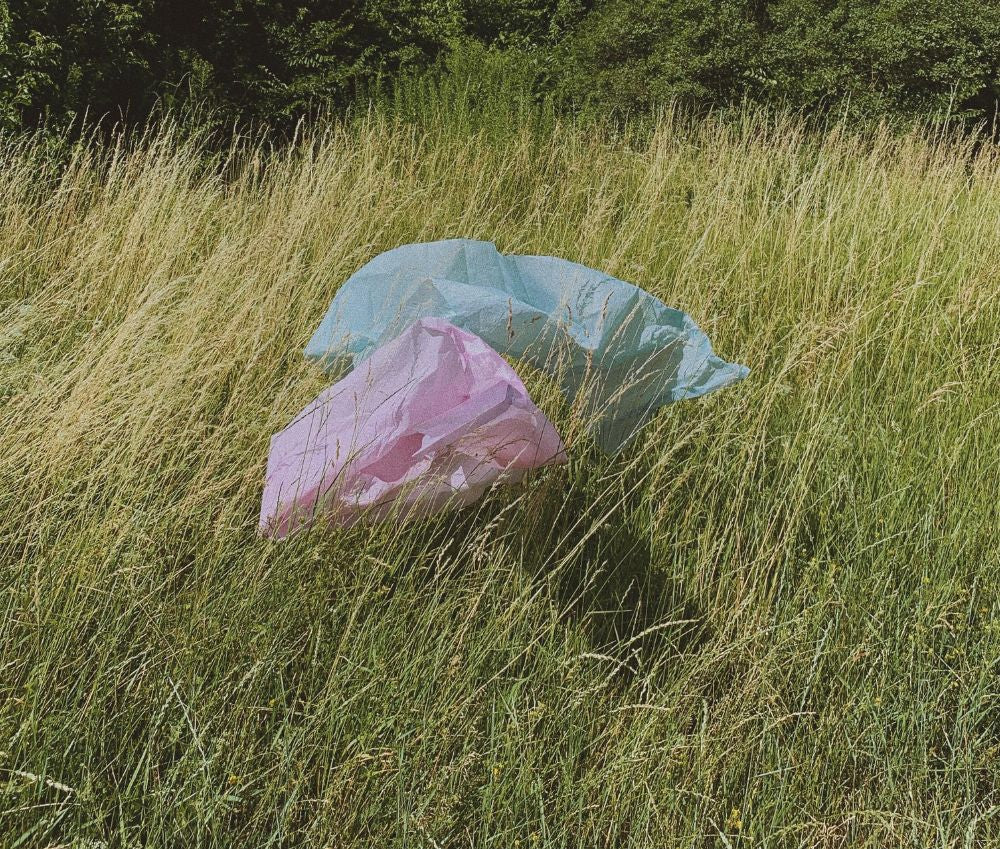How to Reduce Your Plastic Waste (even in a pandemic)

We’re midway through Plastic Free July and COVID has once again sent us into lockdown, and whilst this makes it extremely difficult to be plastic free, we think it’s still important to reduce our impact where we can. Given that we’ve been spending a lot of time at home over the past 18 months we’ve created a guide on how to reduce your impact within your kitchen, bathroom and wardrobe.
What is Plastic Free July?
If you haven’t heard of it before, Plastic Free July is a global movement founded in Australia that encourages everyone to become a part of the solution to plastic pollution by refusing single-use plastics and pledging to reduce their impact and reliance on plastics.
Plastic pollution has a heavy impact on our natural environment, last year in Australia only 9% of plastic waste was sent for recycling, with 84% sent to landfill*; proving the need to reduce our usage, and find valuable ways to recycle our waste according to the Australian Bureau of Statistics 2020.
But, it’s not all doom and gloom...
The founder of Plastic Free July, Rebecca Prince-Ruiz reviewed last year's impact and found that three million Australians joined an estimated 326 million people worldwide took part in the movement, and on average each household was able to reduce their waste by 5% (21 kg) for the year.
What are we doing as a brand to reduce our impact?
In short, everything. From our fabrics, to our packaging and processes we ensure single use plastics never enter our supply chain and business. Our garments are all made from certified post consumer bottles helping to reduce society’s reliance on single use plastic, with over 100,000 bottles recycled to our Raincoats and Activewear so far. Since the beginning of the brand, we’ve never used single use plastic packaging, instead we initially went packaging free, and when compostable packaging became available we transitioned to that for our garment and mailing bags. Unfortunately we still do use a couple of plastic bags each year, to line the boxes that we send our stock in, but we do recycle these, and are pretty happy that we only use about 20 bags, versus the approximate 5,000 that a business of our typical size would use.
Going plastic free at home
With COVID it is a struggle to not use single-use plastic, from using face masks wrapped in plastic, to only being able to order take away whilst trying to support our local cafes, our use of single use has surged. In 2020 ‘households were the largest contributor, supplying 47% of all plastic waste’ (Australian Bureau of Statistics 2020). Whilst it is a challenging time, we’d love to inspire you to adopt a healthy habit and take one step (or a few) to reduce your reliance on single use.
Plastic free in the kitchen
- Start by recycling soft plastics at your local supermarket. From bread bags, fruit and veg bags, to those delicious snacks you buy, unfortunately there is still a lot of single use plastic at the supermarket. If you can’t avoid purchasing it, make sure you take it back to ensure it can be recycled into things like park benches, rather than sit in landfill for hundreds of years
- Make the switch from glad wrap to beeswax wraps, stretch lids, or eco friendly, compostable wraps
- Why stop there? Switch out baking paper for reusable baking paper
- And change your plastic bin bag into an eco-friendly non-plastic liner instead
Plastic free in the bathroom
- Swap out plastic bottles of shampoo, conditioner and hand soap to bar form - reducing the amount of carbon created for transporting products mostly made from water around the world
- It’s time to stop purchasing plastic toothbrushes, and invest in a bamboo alternative instead
- Stop replacing disposable plastic razors with a high quality metal razor
- Finally, say goodbye to aluminium deodorant in plastic bottles and hello to natural deodorants in cardboard and tin packaging
Plastic free wardrobe
As we all know by now the fashion industry historically is incredibly wasteful and has enormous impact on the environment. It’s up to brands to choose better fabrications such as recycled and organic fibres, but it’s important that you as the consumer prioritise sustainable fabrics, helping to create demand and show brands that you want to support a sustainable fashion future.
If you’re new to learning about fabrics, essentially there’s natural and synthetic fibres. Natural fibres like wool, cotton, hemp and silk are great for everyday clothing, but you need synthetic fibres for performance, such as being sweat wicking or waterproof. Traditionally synthetic fibres have been made out of oil, which is incredibly damaging to the environment, but there are better alternatives. At Amble Outdoors we only use recycled synthetic fibres, recycling post consumer bottles to create our high performance fabrics, without the negative impact of traditional synthetic fabrics.
Want to learn more?
Good on you! Below are some of our favourites resources to keep learning more about what we can do.
Read: The Future We Choose: Surviving the Climate Crisis by Christiana Figures and Tom Rivett-Carnac
Watch: A Plastic Ocean
Listen: Age of Plastic by Andrea Fox
So what will you do this Plastic Free July?
It’s not just limited to one month, it’s an opportunity to try something new and hopefully create a new habit. Rather than being overwhelmed by all the things we could all improve at, we recommend choosing one (or a few) changes to make and stick to them for a few months, and slowly make change that you can sustain. By committing to a plastic free pledge you’re helping create a better future for everyone.
Good luck Amblers!
- Tags: Values



